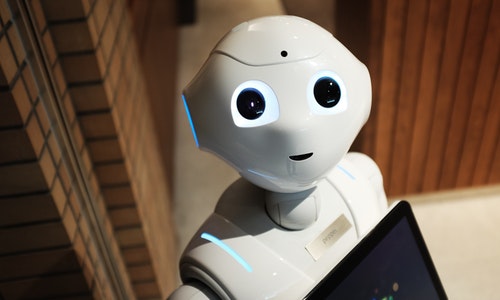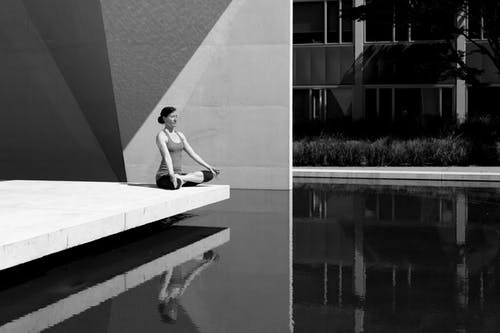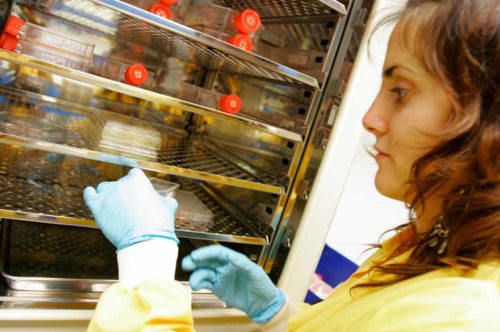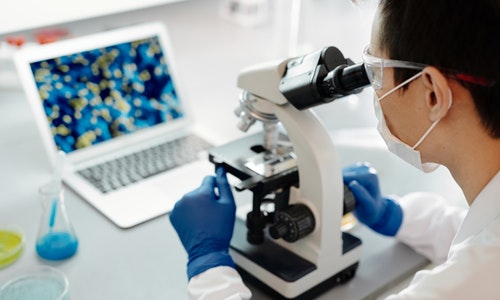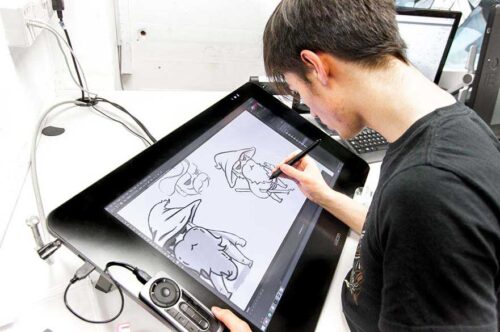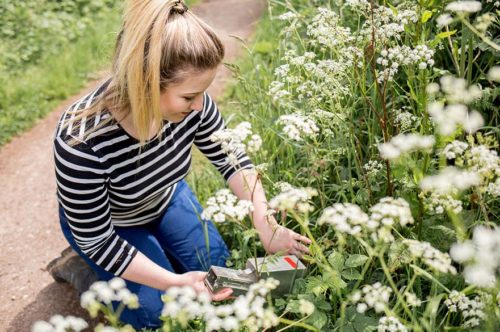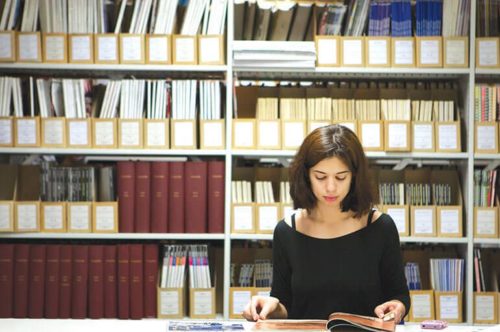Do you want to work within the field of education and make a positive impact on young people? The BA (Hons) Education will develop the knowledge, skills and passion for education in a range of contexts and prepare you to respond to the demands of education with a creative and adaptive approach.
As part of your Education degree you will have the opportunity to undertake a placement in a primary school, an alternative educational setting and a range of international settings such as Prague, Dubai, Budapest, Maastricht and Qatar.
The course will provide you with innovative and forward-thinking pedagogical experiences and assessments that will develop key employability skills such as communication, critical thinking, problem solving and collaboration which will enable you to become a productive and effective member of the global workforce.
You will learn skills to support you to work in sectors such as community and voluntary organisations and to be able to take on the role of education officers in settings such as museums, sports facilities and wildlife trusts. You may also choose to progress onto a PGCE and become a teacher.
What you will study
Your studies will focus on child development and how children and young people learn through the Welsh curriculum. Placement is a key aspect of the course which you will undertake in both school and alternative educational settings.
Digital skills will be developed in line with 21st century expectations and needs. Research is also a key element and you will develop skills to become a research-informed practitioner.
Your learning will involve a combination of lectures and placements. Through experience and observation in a range of educational settings, you will learn how theory translates to real-life practice. You will also develop an understanding of the wider sector which will support you to make informed career choices.
Modules will introduce the necessary values, knowledge, attitudes and skills where you will have the opportunity to develop, observe, practice and reflect in a range of environments, allowing you to explore the interconnectedness of theory so that you can translate it to practice in the wider context. The course is made up of five components each year with the skills and knowledge building upon the previous year’s content.
Year One: BA (Hons) Education Degree
Professional Practice 1, School setting – 40 credits
Within Professional Practice students undertake placements in each of the three years in a range of settings to learn how theory translates to real life practice. The setting for year 1 is a primary school where understanding of the curriculum and child development is observed and experienced first -hand throughout the year. Students’ Welsh language skills are developed to be utilised in the educational setting.
Child of the World – 20 credits
This module cultivates students’ understanding of how children develop through the exploration and analysis of four key themes of child development, both practically and theoretically. Written and oral assessments will provide opportunities for students to demonstrate their knowledge and understanding of child development whilst improving skills in communication, enquiry and critical reflection.
Creative Curriculum 1 – 20 credits
The module takes a practical approach to learning, teaching skills that can be utilised in the classroom environment. This module develops thinking, communication and imaginative skills through creative arts, e.g. drama, art, music, dance and storytelling.
Digital Foundations – 20 credits
This module explores the current uses of technology and how it is used to support and enhance learning opportunities. Creativity, problem solving and computational thinking are a key focus as education looks to ensure learners are skilled and able to understand and use technology in the world around them.
Introduction to Research – 20 credits
This module introduces students to a range of education research skills and strategies including understanding the different types of research, where to start selecting sources and critical reading and reflection.
Year Two: BA (Hons) Education Degree
Professional Practice 2, Alternative educational setting – 40 credits
Students will extend their knowledge and understanding of the importance of reflective, lifelong learning and personal and professional development. Students will develop skills and knowledge required for an alternative educational setting and the importance of communication to meet the needs of the audience. They will continue to develop skills for academic success in higher education, including research skills and skills in relation to Welsh language will also continue to be developed.
Health and Happiness – 20 credits
Exploring the importance of health and well-being in education for all is a key factor in identifying concepts that affect the emotional and social development of children and young people. Alongside well-being as the central theme, the skills for communication and critical thinking are developed to support learning.
Creative Learning – 20 credits
Students will engage with direct experiences including learning through play in the outdoor environment in order to appreciate the development of collaborative and problem solving skills and how these impact on child development and learning.
Digital Development – 20 credits
Technology in education has the power to fully transform the whole learning experience, and to make learning easily accessible to all. The use of a range of apps is explored whilst designing learning opportunities that take advantage of technology and allow learners to gain better access. Resource creation is an important part of the process as well as instructional design of those resources.
Educational Research Journey – 20 credits
This module immerses students within key theory, processes and principles pertinent to undergraduate research, and prepares students to conduct their own project in the final year of the degree.
Year Three: BA (Hons) Education Degree
Professional Practice 3, choice of educational setting – 40 credits
In the final year, academic skills are extended and refined. Students critically examine various approaches to learning, e.g. growth mind-set. They articulate a clear understanding of the continuum of personal and professional development. A range of settings are available to be chosen by the student which may include returning to a primary school or alternative setting, a comprehensive school or the international school option. They also refine skills for success in higher education, e.g. research skills, preparation for employability and the world of work. Students justify and use innovative approaches to promote language skills within educational settings.
Global Citizenship – 20 credits
This module supports students to develop and apply theoretical knowledge concerning aspects of sustainability and citizenship for practical use in a variety of learning environments. Through engaging and stimulating activities, the students will develop knowledge based on equality, diversity and sustainability whilst developing their critical thinking and collaboration skills.
Effective Leadership – 20 credits
Within this module, students are able to reflect upon the principles of effective leadership, consider the styles identified in research and consider the benefits and possible limitations of both. The module focuses on the notion of distributed leadership and critically evaluates how a shared, collective and extended leadership practice builds the capacity for change and improvement. Students also explore and develop a critical perspective on the theory and practice of coaching and mentoring.
Digital Leadership – 20 credits
Students explore management of a digital programme, policies that support and develop a programme and how technology can support beyond the institution. The module focuses on critical reflection of how cultural change can be developed through leadership at any level, specifically focusing on how the students on the course can be instigators of change.
Educational Research Delivery – 20 credits
This module builds upon key themes and principles from Year 2, with students conducting, evaluating and presenting their own research project that will present findings, culminating in recommendations for the educational setting.
Teaching
The BA (Hons) Education degree combines university-based and placement-based study and school placements.
The school-based element involves a placement in the first year with the option of returning to a school setting in the final year. The second year setting is in an educational environment to develop the skills needed outside of the classroom.
A typical week includes sessions on campus (lectures, workshops, seminars, for example) as well as sessions within an educational environment where students work alongside their peers and staff.
Professional learning and development are key foci of the course and students have the opportunity to engage with a range of experts within the field of education, external speakers and guest lecturers.
There are also opportunities to experience Apple Teacher; Google Teacher; Safeguarding; Outdoor Learning; First Aid; TEFL/TEAL; Food and Hygiene; Prevent; Play to learn; Physical Literacy; ELSA; Philosophy for Children (P4C) and Student Assistance Programme (SAP).
Assessment
Assessment includes written coursework tasks, seminar presentations, projects and simulated learning using cutting-edge technology. Practical placement experience are assessed each year in relation to the Professional Practice modules.
There are no examinations for this course.
Zobacz więcej na stronie uniwersytetu >>
Wiza studencka do Wielkiej Brytanii
Aby studiować w Wielkiej Brytanii potrzebujesz wizy studenckiej. Aby złożyć wniosek o taką wizę studencką musisz zdjać certyfikat językowy na poziomie B2.
Uważaj! Do celów wizowych musisz wybrać wyłącznie egzamin w wesji Secure English Language Test (SELT) UKVI .
Co to jest test SELT UK VI registration? Przeczytaj więcej o testach SELT UKVI >>




